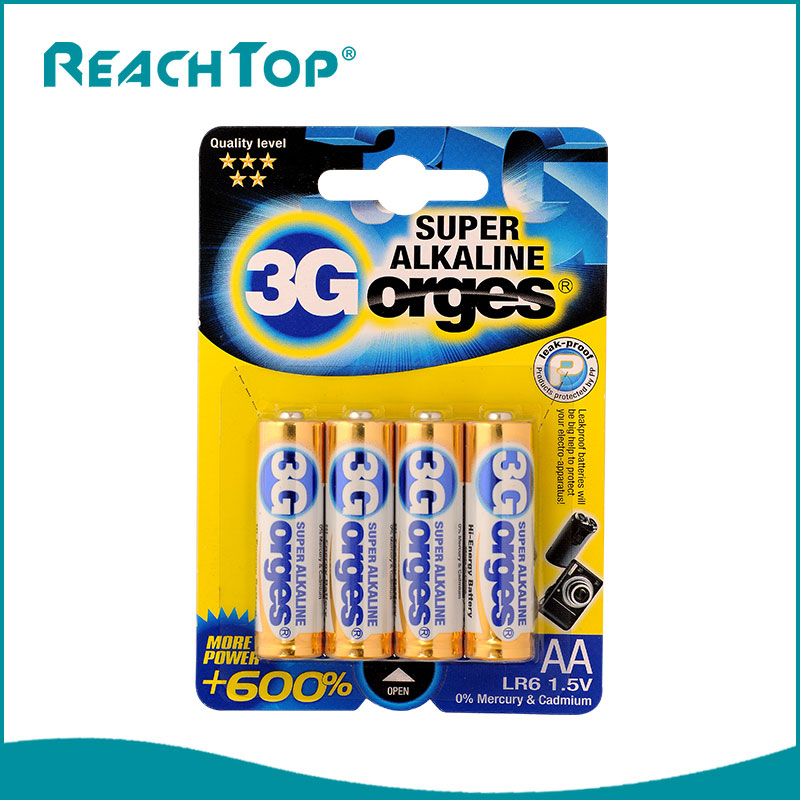Characteristics of alkaline dry batteries
2024-01-06
Alkaline dry batteries are a type of non-rechargeable battery that uses an alkaline electrolyte. These batteries are commonly available in various sizes and are widely used in a variety of electronic devices. Here are key features and characteristics of alkaline dry batteries:
1. Chemistry:
- Alkaline batteries use an alkaline electrolyte, typically potassium hydroxide (KOH), which is a base. The chemistry involves a zinc anode and manganese dioxide cathode.
2. Voltage:
- Alkaline dry batteries typically provide a voltage of 1.5 volts per cell. This standard voltage makes them compatible with a wide range of electronic devices.
3. Sizes:
- Alkaline batteries come in various sizes, including AA, AAA, C, D, and 9-volt. Each size is designed for specific applications, and the different sizes have distinct capacities and physical dimensions.
4. Common Uses:
- Alkaline batteries are used in a multitude of electronic devices such as flashlights, remote controls, digital cameras, portable audio devices, toys, and various household gadgets. They are suitable for both low-drain and moderate-drain devices.
5. Capacity:
- Alkaline batteries generally have a higher capacity compared to older zinc-carbon batteries. This means they can provide more energy over time and are better suited for devices that have a moderate power consumption.
6. Shelf Life:
- Alkaline batteries have a relatively long shelf life, and they can be stored for several years without significant loss of power. This makes them suitable for stocking up or keeping spare batteries for emergencies.
7. Non-Rechargeable:
- Alkaline batteries are non-rechargeable, and attempting to recharge them can lead to leakage, overheating, and other safety hazards. If you need rechargeable options, consider nickel-metal hydride (NiMH) rechargeable batteries.
8. Performance at Different Temperatures:
- Alkaline batteries generally perform well across a range of temperatures. They are suitable for both indoor and outdoor use.
9. Environment:
- While alkaline batteries are non-toxic, they contain materials that can be harmful to the environment. It's essential to follow proper disposal practices and consider recycling options.
10. Cost:
- Alkaline batteries are cost-effective and widely available. They provide good performance for their price, making them a popular choice for everyday applications.
When selecting alkaline batteries, it's important to choose the right size and voltage for the intended device. Pay attention to the manufacturer's recommendations and consider the device's power requirements to ensure optimal performance.



